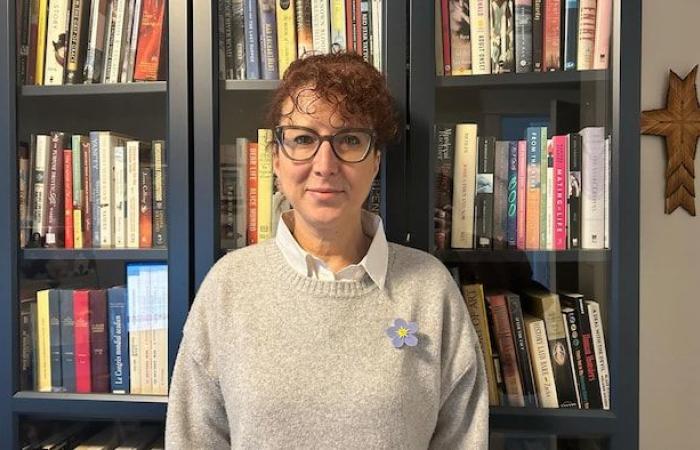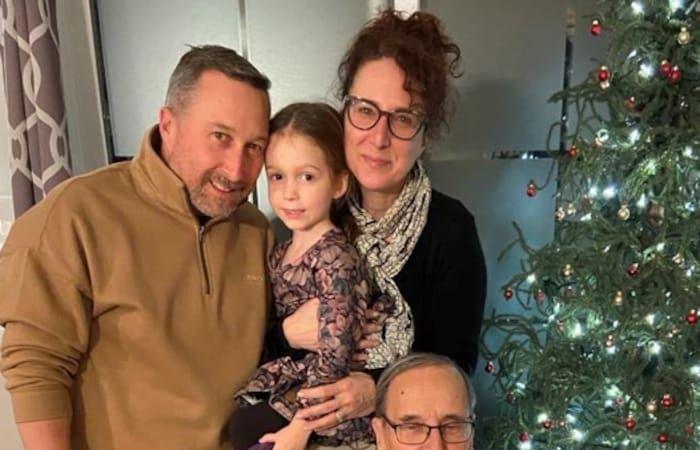In New Brunswick, approximately 15,000 people suffer from Alzheimer’s disease, a situation that is often difficult for caregivers.
Marie-Paule B. LeBlanc knows something about this. An employee of the Alzheimer Society of New Brunswick for 6 years, her father was diagnosed with this neurodegenerative disease in the spring of 2023.
The diagnosis is a shock. You know your life will never be the same again.
Since then, she and her brother have been responsible for making many important decisions that she wishes no child would have to make for a parent. For example, confiscating car keys for safety reasons and deciding the level of resuscitation in an emergency.
This is where it’s really hard to make informed decisions with a heart that is breaking with emotion. I know that I’m going to lose my father. He’ll be there, but my dad won’t be there anymore
she testifies.
She explains that a support system is essential, not only for the person affected, but also for their caregivers.
Firstly, the message I would like to convey is that no one can go through this journey alone. You really need to have support, you need to get help
she emphasizes.
Open in full screen mode
Marie-Paule B. LeBlanc has worked for the Alzheimer Society of New Brunswick for 6 years.
Photo : - / Allie Chouinard
The Alzheimer Society of New Brunswick offers several support services for people with the disease and their loved ones. For example, the Caregiver Support Network allows people to meet every month to share their experiences, encourage each other and learn from their experiences.
I thought I knew the extent of the programs and services, but experiencing it, with all my heart, is a new level of understanding and gratitude
explains Ms. LeBlanc.
I didn’t know that, overnight, I would go from an employee to a customer.
Difficult communication
For Marie-Paule, the main challenge linked to her father’s illness comes from the fact that communication with him has become difficult.
-Last year I could have small conversations with my father, this year I have more. His train of thought is disjointed, he replaces words with others, so understanding him is really difficult. A few months ago, I really realized that I have another grieving to do, and that is the fact that I am never going to speak to my dad again.
she testifies.
His father, who resides in an English-speaking care home in Moncton, will even have to move due to his communication challenges.
My father was bilingual. He comes from the Acadian Peninsula, French is his mother tongue, but he understands English
says her daughter.
However, as the weeks went by, Ms. LeBlanc noticed that her father was losing his ability to understand English. For his well-being, she decided to transfer him to a French-speaking care home.
On the importance of empathy
According to Marie-Paule LeBlanc, showing empathy remains the key when the time comes to communicate with a person suffering from Alzheimer’s disease.
Sometimes you try to reason with them and make them understand the logic of something, but at a certain point you have to stop, because it can become a source of frustration for them and for you too. You really have to go into the world of the person
she explains.
Open in full screen mode
Despite her illness, Marie-Paule B.-LeBlanc enjoys every moment she spends with her brother.
Photo: Courtesy: Marie-Paule B.-Leblanc
Despite her illness, Marie-Paule B. LeBlanc enjoys every moment she spends with her brother.
What comforts me a little is that I prefer it to be my heart that breaks than his heart […] It’s really for the family and caregivers for whom it is more difficult because the person fades into their world. She forgets that she forgets
she declares.
My father is happy today.







